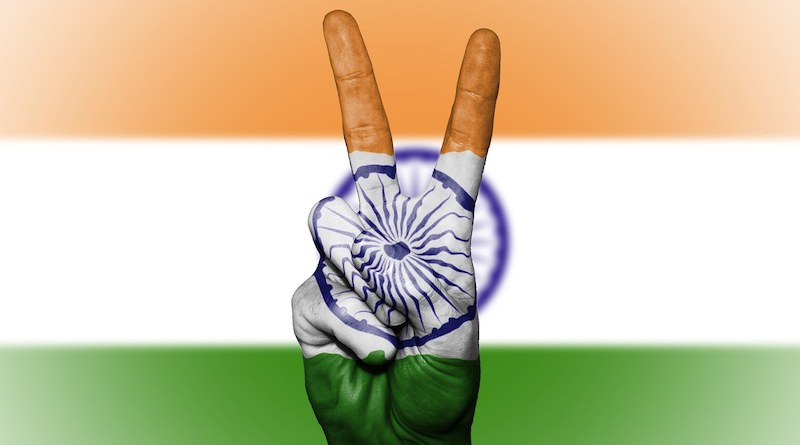Human Rights And Minority Rights Crisis In India – OpEd
By Waleed Sami
India, a country where people are diverse in terms of their cultures, languages and traditions, is known for its democratic character and the love it exhibits for the ideals of tolerance. However, under its glossy democratic outlook, on the other side of the curtain, we can see a very different reality, which is a serious human rights and minority rights crisis. This dichotomy is a direct threat to the very foundation of Indian society and humanity as well. As the world watches, the voices of alarm become louder, resonating from the halls of international organisations to the footpaths of Indian cities.
The United Nations Alarm
United Nations human rights experts issued a joint press release warning of intensified human rights breaches targeting the minorities, media, and civil society in India. The experts expressed deep worries about the rise in violence and hate crime, that has targeted religious, racial, and ethnic minorities, as well as women and girls. Those were among the issues pointed out that involve dehumanising language, incitement to violence, the arbitrary killing of minorities, forced disappearances of certain persons, and the destruction of minority homes.
It was their attention-seeking, harassment, and arbitrary arrest of human rights advocates, journalists, and officials, rather than employing agencies for the greater good, as their standards of conduct require. During the latest reporting period, UN human rights experts sent 78 messages to India beginning March 7, 2019, of which only 18 answers were received, indicating a troublesome level of apathy in response from Indian authorities. Refusing a UN Special Procedures delegation’s access to assess human rights conditions adds another layer to successfully preventing and addressing human rights breaches.
The noted reports of violence and hate crimes against minorities; dehumanising rhetoric and incitement to discrimination and violence; targeted and arbitrary killings; acts of violence carried out by vigilante groups; targeted demolitions of minorities’ homes; enforced disappearances; the intimidation, harassment, and arbitrary and prolonged detention of human rights defenders and journalists; arbitrary displacement due to development mega-projects; and inter-communal violence, are only a few to mention.
Amnesty International’s Report: A Grim Reality
Amnesty International’s research report sheds light on the harsh realities that minorities face in India. The weaponisation of state agencies against civil society, human rights campaigners, and journalists has resulted in a decreasing civic sphere. The ruling Bharatiya Janata Party (BJP) is accused of inciting hatred and violence against religious minorities, notably Muslims.
Punitive demolitions of Muslim houses, arbitrary internet shutdowns, and the arrest of Muslim activists under harsh legislation, all present a gloomy image of state-sponsored prejudice. The research report emphasises the systemic obstacles, the marginalised groups face in India and an urgent need for accountability and justice.
National financial and investigative institutions were armed against civil society, human rights defenders, activists, journalists, and critics, further limiting civic space. Government officials, political leaders, and fans of BJP, the federal dominant political party, have openly encouraged hatred and violence against religious minorities, notably Muslims, increasing hate crimes.
Punitive demolitions of predominantly Muslim properties, including houses, shops, and places of worship, resulting in widespread forced evictions following incidents of communal violence, have remained prevalent and went on unpunished.
The Plight of Minorities: Stories of Injustice
Individual tales, such as the savage murder of a Muslim cleric in the Ajmer Masjid, serve as harsh reminders of the human cost of bigotry and hatred. The horrible assault, carried out by masked intruders, has sent shockwaves across the community, sparking cries for justice and responsibility.
Despite the misery, there are glimmers of hope, including police vows of a thorough investigation and community cooperation in seeking justice for the killed clergyman. However, such rare occurrences only highlight widespread prejudice and violence experienced by minorities in India.
The 2024 Lok Sabha elections are a watershed moment in India’s democratic history. The electorate’s dissatisfaction with political hyperbole and polarisation has reached a critical point. The dissatisfaction with the ruling party, the BJP, and its divisive methods highlights a rising desire for change.
The Path Ahead: A Call to Action
The international community, from the halls of the United Nations to the corridors of power in global capitals, must demonstrate solidarity with people fighting for justice and equality in India. The marginalised, subjugated, and persecuted must not have their voices muted but rather amplified. As the world observes, let India heed history’s call and embrace the values of human and minority rights. There can be no spectators in the fight for justice; only comrades in the quest for a more equal and inclusive society. Finally, the ultimate measure of a nation’s greatness is not its money or power, but its dedication to defending the dignity and rights of all its residents, regardless of race, faith, or belief.

